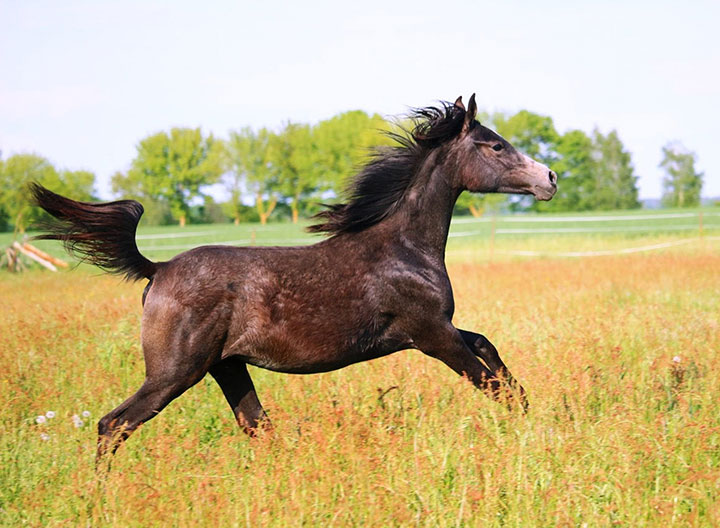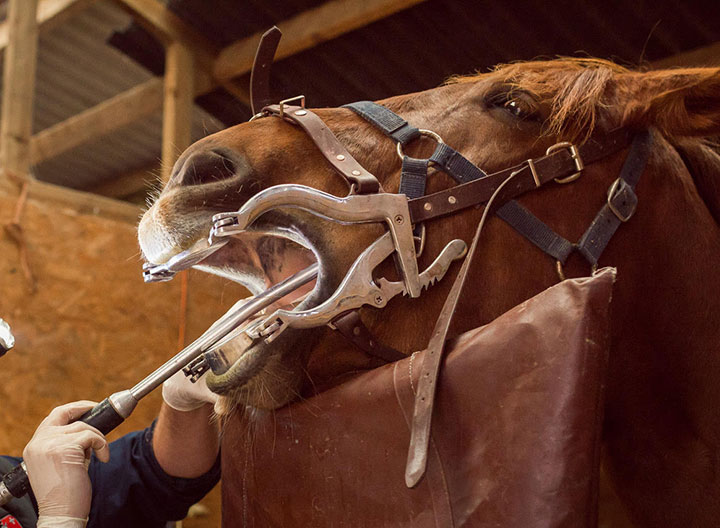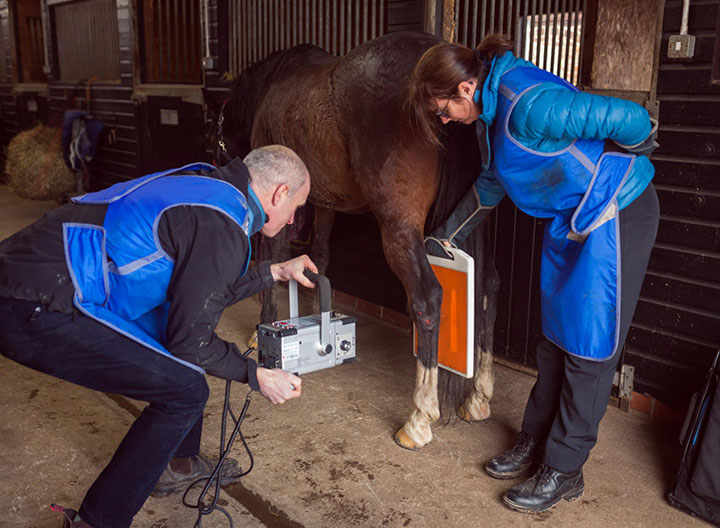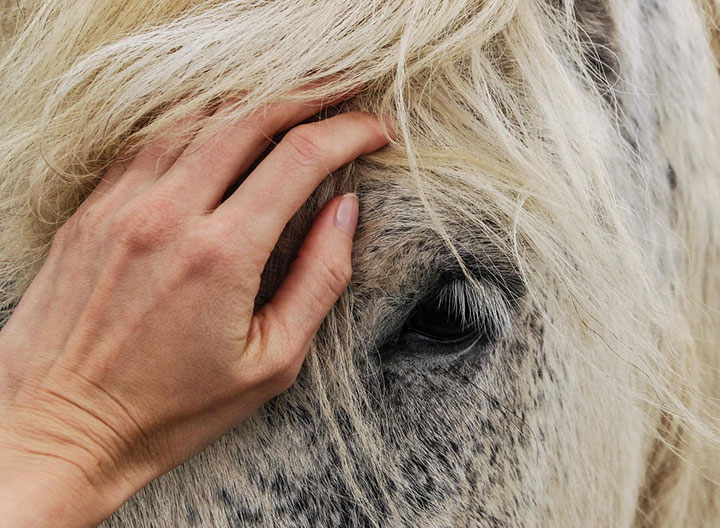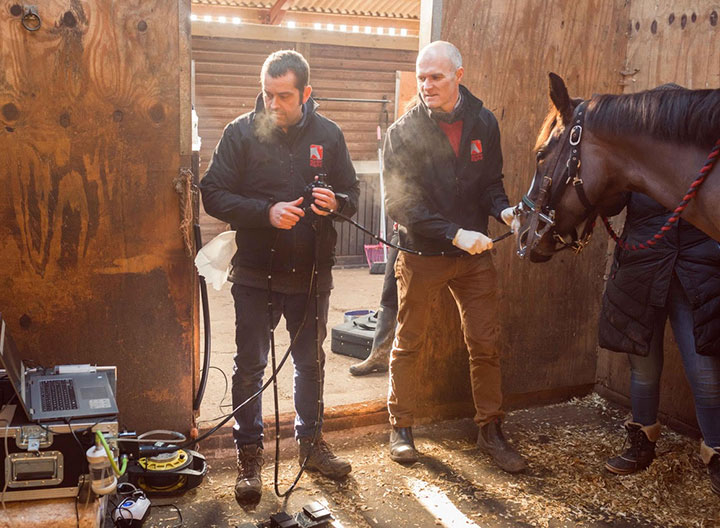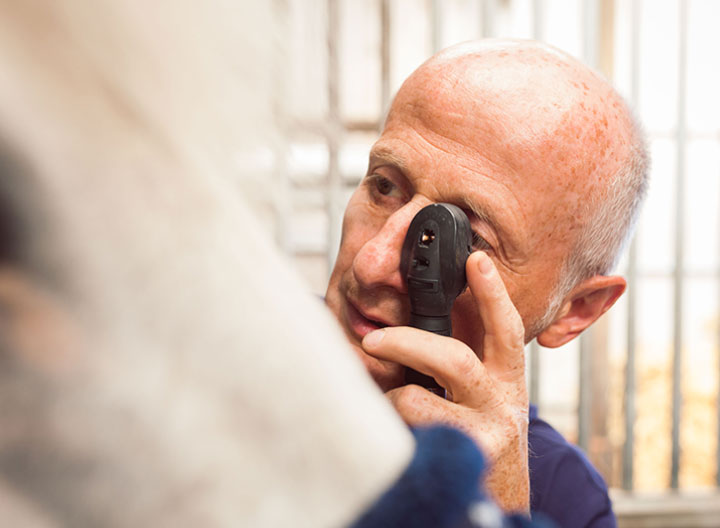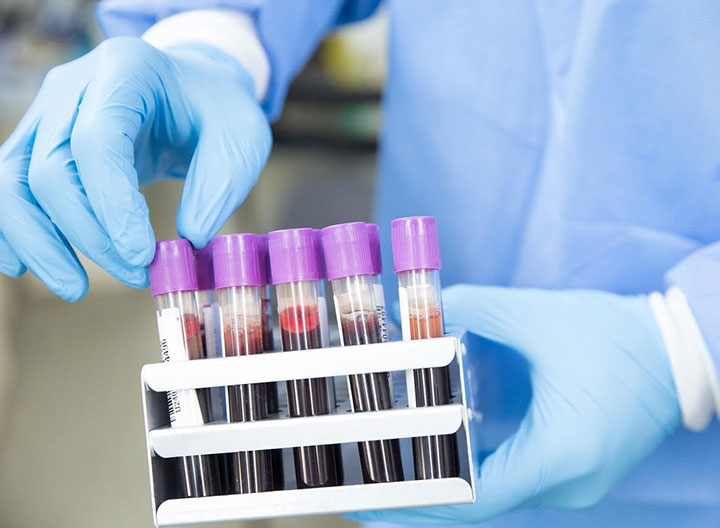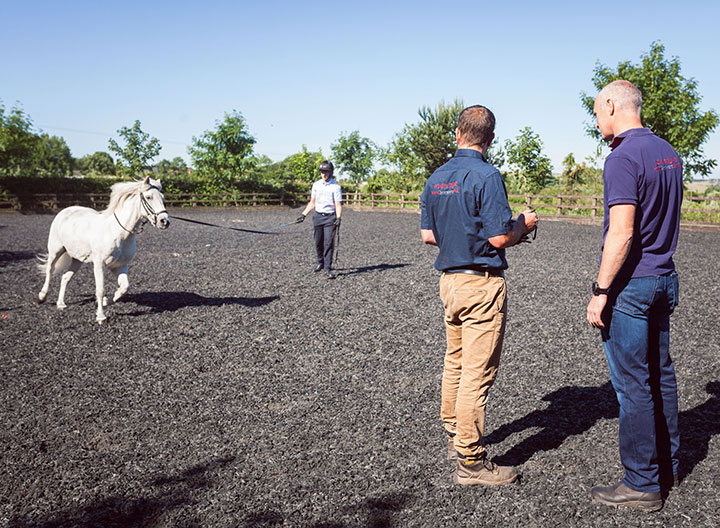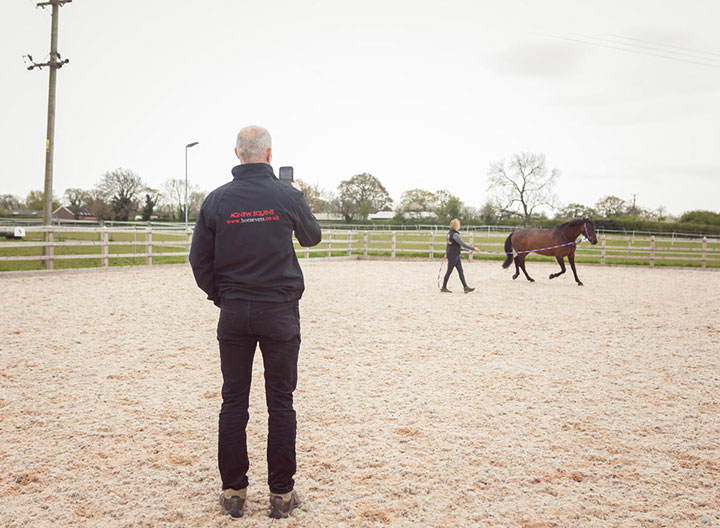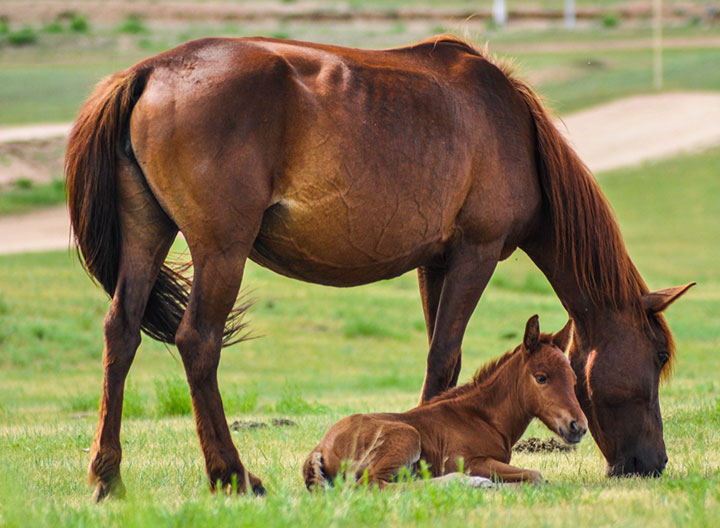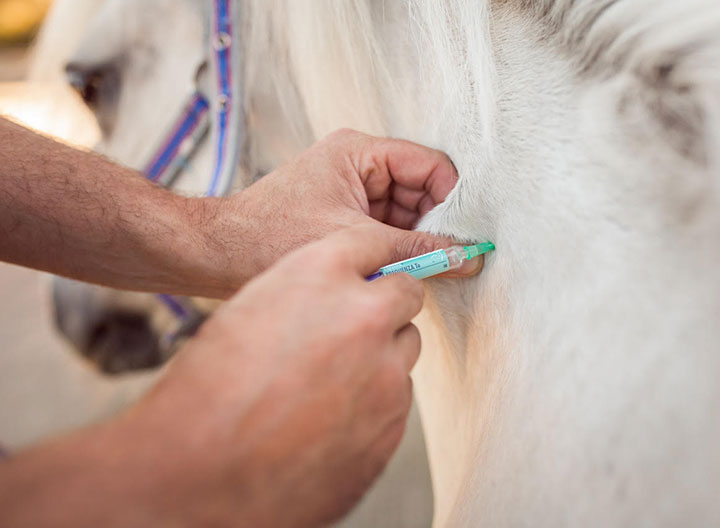Foaling
Foaling can be a stressful time for all concerned, not least of all, the owner! But if everything goes smoothly, it is one of the most magical experiences that an owner can have. It is important to remember that the vast majority of foalings take place unassisted and without any unwelcome eventualities, but we advise to be prepared and have things in place should a problem arise.
In order to help mares concentrate high levels of antibodies in their colostrum, we recommend having them vaccinated against tetanus and equine influenza a month before their due date. This will stimulate specific immunity against these diseases which is helpful to the foal - and may also help the mare produce antibodies generally.
Problems To Look For
- Positioning: The foal should present with its front feet (one slightly in front of the other) followed by the head. Any other positioning is abnormal and a successful delivery may require assistance.
- Red Bag: If you see a red velvety structure bulging from the vulva, this is an extreme emergency and you should call your veterinarian immediately. The placenta has started to separate from the uterine wall before the foal is delivered and the foal can quickly suffocate and die.
- Mare Fatigue: If the foal is large and the mare is having a hard time pushing on her own, she may need assistance. She may become fatigued and stop pushing.
- 1- 2- 3 Rule: The foal should stand within an hour, they should nurse within two hours of delivery and the mare should pass the fetal membranes within 3 hours of delivery. If any of these are not happening as expected, give us a call.
- Failure of Passive Transfer: This is a failure for the foal to receive sufficient antibodies from their mother, and there are three reasons for this:
- The mare has poor colostrum
- The foal did not receive the colostrum in the appropriate amount of time
- The foal did not properly absorb the nutrients
This can be determined by a simple IgG test, and once diagnosed, the vet will take immediate treatment action as a foal can deteriorate quickly. Foals get the majority of their immunity from the mare's colostrum in the first 12-24 hours and it is also the most likely time for them to contract infection or disease.
Even if everything seems ok with the mare and foal, we still recommend an examination by a vet to check that everything is as it seems. A veterinary examination would involve checking the mare, foal and placenta.

